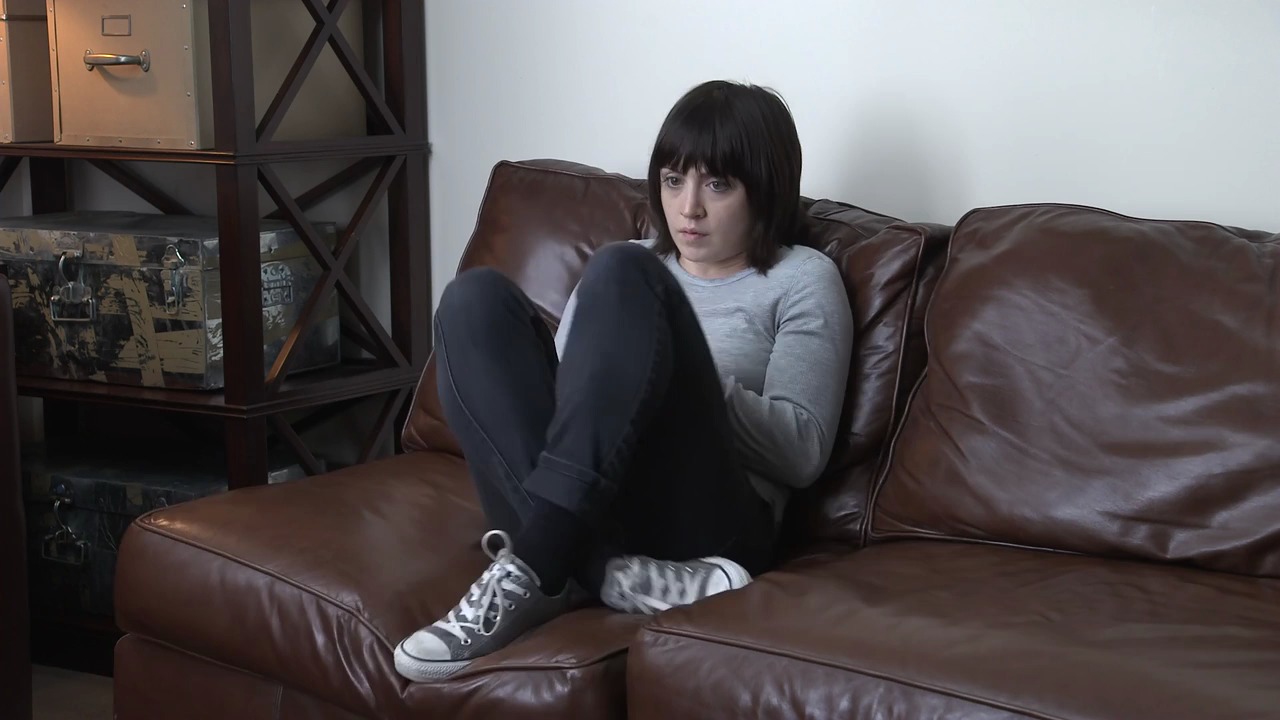Effacing taboo subject matter like incest is a common approach in fiction. Lust crackles in the diegetic air, ensconced in subtle gestures that tell all or remain simply suggestive. Conversations avert true motivations whilst coming off curt, blasé or awkward–resulting in a revelatory subtext too visceral to put into spoken language. Such tactics speak volumes on prohibited desires. Dan Sallitt takes a different strategy in his fourth feature film The Unspeakable Act, a work based on one teenager’s candid diary-like experience with her romantic obsession with her older brother. Jackie (Tallie Medel) is stumped by her brother Matthew’s (Sky Hirschkron) college-bound departure from their childhood home, though she explicitly understands his need to develop “mature adult relationships.” Jackie is 17 but Medel and Sallitt imbue her with an intelligence of someone much older; this has less the entertaining effect of a precocious young person flaunting savvy wit (like in Juno or Brick) and instead results in a refined illustration of the insidious power of cognitive dissonance. Jackie may be able to admit that she is “fucked up,” but her reasons in loving Matthew–because he’s the “best person” she knows–demonstrates the degree to which her extremely limited experience with love counteracts her logical faculties in the matter.
Indeed, Jackie’s mix of intelligence and forthrightness are a fairly rare set of traits in drama, and it gives Sallitt the opportunity to skip rehashed adolescent emotional traps (e.g. being reluctant or dismissive of therapy) and head straight for the kind of blunt, open-eyed confusion about a subject the protagonist has embraced that nobody else wants to discuss. Her phases in dealing with the situation frequently leave her brusque but profusely emotional, apparent even in scenes when she’s not openly bemoaning her brother’s descent into adulthood. When Matthew brings home a girl for dinner, it would have been so simple and redundant for her jealousy to spill over into a dinner conversation made awkward and stilted by volcanic passive-aggressive jabs. Jackie is too smart for that, but her true feelings still surface. She’s generous and nice to the girl to a fault, to the point that in their initial meeting in the hallway, with all other family members present, she physically cuts herself off from the others and exists purely in a bubble with the girl, chit-chatting in a rushed way that can’t exactly be described as merely exchanging pleasantries. It’s more that brand of polite, Gen-Y competitive small talk that is half humble brag, half friendly banter. These conversations, and others where she talks about sex and love with her friends–contexts in which her love for Matthew must be completely restrained–are absolutely fascinating.
Jackie is another character in a new line of young white female protagonists whose assertive qualities are an extension of generational and class privilege that still demonstrate the gendered limits of their self-realization because of the relatively few safe places they have to tackle the burden of emotional predicaments. Therapy is not the end-all, be-all cure for Jackie in realizing that her love life is forever doomed, that her skewed love maps don’t prevent her from meeting others, getting to know them, and even falling in love with people outside of her family. The “getting to know” them part is crucial for Jackie–she and her therapist discover that she finds extreme comfort in the intimate familiarity of knowing a person, which makes her fall in love with someone more than the aura of mystery.
But such realizations, and the therapist’s blunt, laissez-faire approach don’t quite work miracles: Jackie is resistant to the shrink’s suggestion of applying for a college other than Princeton, where Matthew attends, though after stopping therapy she finally admits via voiceover that she never completed her Princeton application. This decision is the closest Jackie shows any improvement in “growing up” and it’s a pretty elegant place to leave matters. Idealized notions of life and love are seemingly immutable beliefs that are only ever really changed through the long, frequently turbulent trials of adult experiences like the ones in college, where forced socialization with an abundance and variety of people can radically change one’s personality. In the end, as much as Jackie likes to think she knows herself and her family (her extremely specific predictions about her sister’s future are particularly astute), her talent in making well-articulated, sophisticated personal observations is no match for the dearth of life experiences of being a 17-year old.

